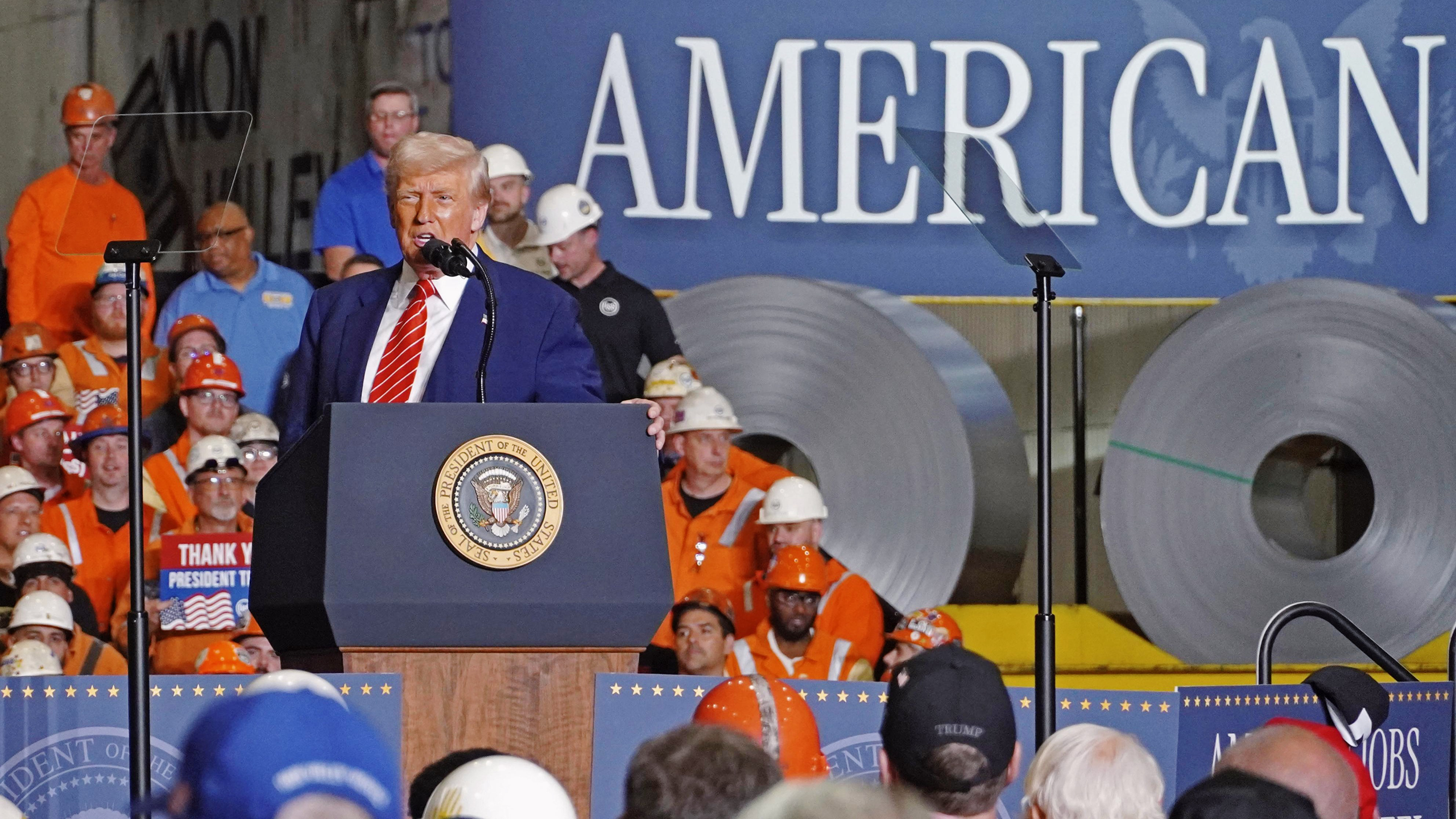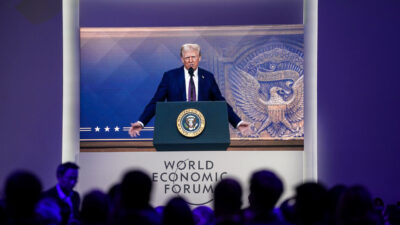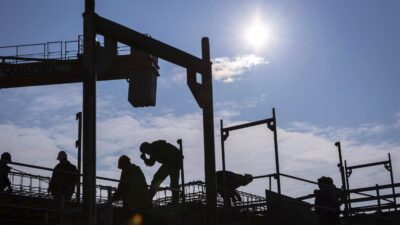US Flexes Golden Share in Nippon Merger With US Steel
The deal is the Trump administration’s attempt to stake out a new path for balancing national security and the influx of foreign capital.

Sign up for smart news, insights, and analysis on the biggest financial stories of the day.
A year-and-a-half wait tested its mettle, but Nippon Steel finally got its $14.9 billion deal.
On Monday, days after the US government signed off on the Japanese firm’s contentious acquisition of stateside competitor US Steel, Trump administration officials disclosed initial details of a special “gold” share that gives Washington extraordinary powers over the combined operation’s future.
Class G is in Session
The deal is heavy even by metal standards — it’s the Trump administration’s attempt to stake out a new path for balancing national security and the influx of foreign capital. Nippon Steel had been trying to close the purchase of US Steel since December 2023. The Biden administration halted it over national security concerns and an 18-month purgatory followed. Meanwhile, the already struggling US Steel endured significant headwinds while in the holding pattern, including a drop in annual net earnings to $384 million last year from $895 million in 2023, which was compounded by weak demand for steel due to global oversupply. The culprit? China increasing exports as its real estate sector sputtered.
The transaction finally moved ahead after Nippon pledged billions in investments and the Trump administration secured a guarantee that the US government would hold a single share of preferred stock, dubbed class G for “gold,” in the combined entity. That share affords close to a dozen extraordinary powers, which Nippon wanted to end after three or four years. But Trump officials dug their heels in and, Commerce Secretary Howard Lutnick tweeted Saturday, the “gold” share’s powers will exist in perpetuity. Initial details have left markets pricing US Steel right where Nippon’s offer landed in 2023:
- Under the national security agreement Nippon and US Steel signed on Friday, the “gold” share will allow the US government to block the combined company from delaying or reducing $14 billion in promised investments, moving production or jobs abroad and closing or idling plants before certain timeframes. The US will also appoint a board member handpicked by the sitting president and have the right to veto any move to relocate US Steel’s headquarters out of Pittsburgh or to change its name. Lutnick said it will also have controls over “employee salaries, anti-dumping pricing, raw materials and sourcing outside the US, acquisitions and more.”
- US Steel shares rose 5.1% on Monday and, at $54.85, closed mere pennies away from Nippon’s $55-per-share offer. They have gained 61% this year, climbing dramatically late last month after the Trump administration began telegraphing that it expected a deal. That suggests a significant amount of gains around the deal are already priced in.
The Golden Oldies: The “gold” share concept was pioneered in the 1980s by Conservative UK Prime Minister Marget Thatcher, who used the privileged stock to preserve certain controls over state-owned enterprises her government privatized. Other European countries followed suit, but the practice fell out of favor in the early 2000s after the European Court of Justice restricted the use of gold shares, arguing they impede the free movement of capital.











